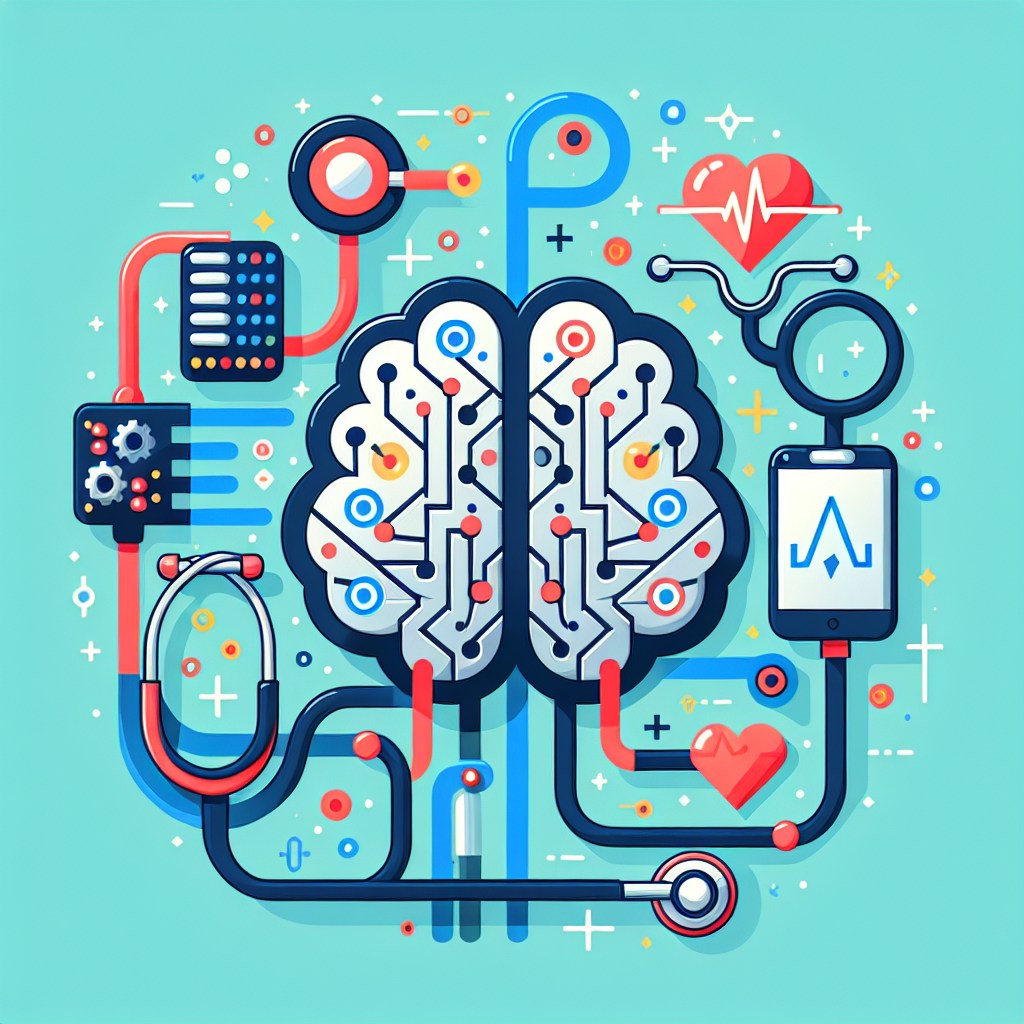Artificial Intelligence (AI) has been increasingly integrated into the field of medical device development, revolutionizing the way medical devices are designed, tested, and implemented in healthcare settings. This article will explore the role of AI in medical device development, its benefits, challenges, and potential future implications.
AI in Medical Device Development:
AI technology has the potential to significantly impact the development of medical devices by streamlining the design process, improving accuracy and efficiency, and enhancing the overall quality of healthcare delivery. With the ability to analyze vast amounts of data and identify patterns that may not be apparent to human researchers, AI can help developers create more innovative and effective medical devices.
One of the key ways AI is being used in medical device development is in the design and optimization of devices. By utilizing machine learning algorithms, developers can analyze data from patient records, clinical trials, and other sources to identify trends and patterns that can inform the design of new medical devices. This can lead to the creation of devices that are more tailored to the specific needs of patients, resulting in improved outcomes and reduced risks.
AI is also being used in the testing and validation of medical devices. Traditional methods of testing medical devices can be time-consuming and costly, but AI technology can help streamline this process by simulating real-world conditions and predicting how a device will perform in different scenarios. This can help developers identify potential issues early on and make necessary adjustments before the device is brought to market.
Furthermore, AI can assist in the monitoring and maintenance of medical devices once they are in use. By analyzing data from sensors and other sources, AI can help healthcare providers identify potential issues with devices before they become serious problems, leading to improved patient safety and outcomes.
Benefits of AI in Medical Device Development:
There are several key benefits to incorporating AI into medical device development:
1. Improved accuracy: AI technology can analyze large amounts of data quickly and accurately, leading to more precise and reliable results in device development.
2. Enhanced efficiency: AI can streamline the design and testing process, reducing the time and resources required to bring a device to market.
3. Tailored solutions: AI can help developers create medical devices that are more personalized to individual patient needs, leading to better outcomes and patient satisfaction.
4. Early detection of issues: AI can help identify potential problems with medical devices before they become serious, improving patient safety and reducing the risk of device failures.
Challenges of AI in Medical Device Development:
While the benefits of AI in medical device development are clear, there are also challenges that need to be addressed:
1. Data privacy and security: AI technology relies on vast amounts of data, which raises concerns about patient privacy and data security. Developers need to ensure that data is properly protected and used in accordance with regulations.
2. Regulatory approval: The use of AI in medical device development may require regulatory approval, which can be a complex and time-consuming process. Developers need to work closely with regulatory authorities to ensure compliance with guidelines and standards.
3. Ethical considerations: AI technology raises ethical questions around issues such as bias in algorithms, accountability for decisions made by AI systems, and the impact on healthcare providers and patients. Developers need to consider these ethical implications when incorporating AI into medical device development.
Future Implications of AI in Medical Device Development:
The integration of AI technology into medical device development is likely to have far-reaching implications for the healthcare industry. Some potential future developments include:
1. Personalized medicine: AI technology can help developers create medical devices that are tailored to individual patient needs, leading to more personalized and effective treatments.
2. Remote monitoring: AI can enable the remote monitoring of patients using medical devices, allowing healthcare providers to track patient data in real-time and intervene as needed.
3. Predictive analytics: AI technology can help predict and prevent medical device failures, leading to improved patient safety and outcomes.
4. Enhanced collaboration: AI can facilitate collaboration between different stakeholders in medical device development, such as researchers, clinicians, and industry partners, leading to more innovative and effective solutions.
FAQs:
Q: How is AI used in medical device development?
A: AI is used in medical device development to streamline the design process, improve accuracy and efficiency, and enhance the overall quality of healthcare delivery. It can help analyze data, identify trends, and patterns to inform the design of new medical devices, test and validate devices, and monitor and maintain devices once they are in use.
Q: What are the benefits of incorporating AI into medical device development?
A: The benefits of incorporating AI into medical device development include improved accuracy, enhanced efficiency, tailored solutions, and early detection of issues. AI technology can help create more personalized and effective medical devices, streamline the design and testing process, and improve patient safety and outcomes.
Q: What are the challenges of using AI in medical device development?
A: Challenges of using AI in medical device development include data privacy and security concerns, regulatory approval requirements, and ethical considerations. Developers need to ensure that patient data is properly protected, comply with regulatory guidelines, and address ethical implications of using AI technology in healthcare.
Q: What are the future implications of AI in medical device development?
A: Future implications of AI in medical device development include personalized medicine, remote monitoring, predictive analytics, and enhanced collaboration. AI technology is likely to lead to more personalized and effective treatments, enable remote monitoring of patients, predict and prevent device failures, and facilitate collaboration between different stakeholders in device development.

